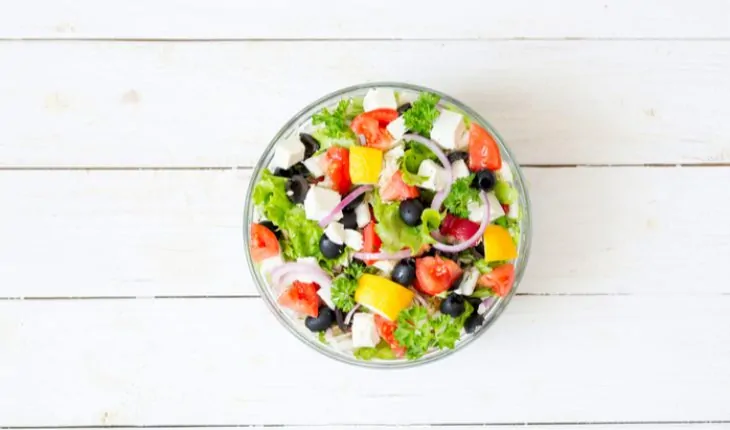Mediterranean diet or mindfulness during pregnancy reduces the risk of a low birth weight baby:
- A clinical trial for pregnant women at high risk of a low birth weight baby demonstrates for the first time that Mediterranean diet or mindfulness-based stress reduction interventions during pregnancy reduce the prevalence of low birth weight by 29-36% as well as other complications of pregnancy, for which no treatment had been identified until today.
- The study, published in JAMA, was coordinated by researchers from BCNatal (Hospital Clínic-IDIBAPS and Hospital Sant Joan de Déu) and from the University of Barcelona.
- Study part-funded by UK charity, Cerebra as part of their collaboration with universities and professionals to develop understanding of neurodevelopmental conditions and offer support to children and their families.
Low birth weight affects up to 10% of pregnancies and stems from fetal growth restriction. Until today, no treatment that could improve this condition is available. A study published in JAMA led by researchers from BCNatal (Hospital Clínic-IDIBAPS and Hospital Sant Joan de Déu in Barcelona), has demonstrated for the first time that fetal growth can be improved by maternal lifestyle changes. The study specifically demonstrates a reduction of low birth weight babies up to 29% and 36% by intervening on the mother’s diet and lowering her stress level.
The study was coordinated by Eduard Gratacós, director of BCNatal and the Fetal and prenatal medicine group at IDIBAPS and CIBERER, Francesca Crovetto (Hospital Sant Joan de Déu) and Fàtima Crispi (Hospital Clínic), from the Maternal-Fetal Medicine Services of BCNatal and researchers from the same groups. It was conducted in collaboration with the teams of Ramon Estruch, from the Internal Medicine Service at Hospital Clínic, head of the Cardiovascular risk, nutrition and aging group at IDIBAPS and researcher at CIBERON; Eduard Vieta, head of the Psychiatry and Psychology Service at Hospital Clínic, from the Bipolar and depressive disorders group at IDIBAPS and scientific director of CIBERSAM, as well as professionals from the esMindfulness Institute, directed by Andrés Martín-Asuero. The project also received the support of CEREBRA, La Caixa Foundation, CIBERER and AGAUR.
Low birth weight is associated with birth complications and health problems
Low birth weight babies (birth weight below the 10th centile) account for 10% of all births. Low birth weight reflects growth restriction in fetal life, it is recognised by the WHO as one of the most important causes of perinatal mortality worldwide and it is linked to poorer neurodevelopment in childhood and higher risk of metabolic and cardiovascular health problems in adulthood. No treatment had existed until now that could prevent or improve this condition.
The research team led by Dr Eduard Gratacós has been studying the possible causes and consequences of low birth weight for many years. “We saw that mothers of low birth weight newborns often had a suboptimal diet and high stress levels,” explains Dr Gratacós. This led to the idea of conducting a clinical trial to study whether structured interventions based on Mediterranean diet or stress-reduction could reduce fetal growth restriction and other pregnancy complications.
IMPACT BCN study: maternal lifestyle intervention
The three-year IMPACT Barcelona study involved more than 1,200 pregnant women at high risk of having a small baby at birth. Pregnant women were randomly divided into three groups: one in which they had visits with a nutritionist in order to follow a Mediterranean diet, a second group in which they followed a mindfulness programme to reduce stress, and a control group with usual monitoring. A follow-up was then conducted to see how the baby was developing and whether there were any complications during pregnancy and delivery.
The dietary intervention was based on methods used in the PREDIMED study, that demonstrated the benefits of a Mediterranean diet to prevent cardiovascular disease, which was endorsed by the American Heart Association. Pregnant women in this group had a monthly visit with a nutritionist to change their dietary patterns and adapt these to a Mediterranean diet, incorporating more fruit and vegetables, white meat, oily fish, dairy products, whole wheat grains and products high in omega-3 and polyphenols. They were therefore given free extra virgin olive oil and walnuts. “We measured biomarkers in blood and urine related to the intake of walnuts and olive oil in order to assess objectively if they were adhering to this intervention,” explains Francesca Crovetto.
The stress reduction intervention was based on the Mindfulness-Based Stress Reduction (MBSR) programme developed by University of Massachusetts and adapted to pregnancy by the Barcelona researchers. Groups of 20-25 women were formed to follow the pregnancy-adapted programme for eight weeks. “Questionnaires were completed at the programme’s beginning and end and levels of stress-related hormones, cortisol and cortisone, were measured in order to identify if any stress reduction had occurred,” says Dr Crovetto.
The study has demonstrated, for the first time, that a Mediterranean diet or mindfulness during pregnancy reduces the percentage of low birth weight and improves complications in pregnancy, such as preeclampsia or perinatal death, when used in a structured, guided manner. “The results were clear: pregnant women in the control group had 21.9% of low birth weight newborns, and this percentage was significantly reduced in the Mediterranean diet (14%) and mindfulness (15.6%) groups,” explains Dr Fàtima Crispi. “We are now designing a multicentre study to apply these results to any pregnant woman, without the need to be at risk of having a low weight baby,” she adds.
“This is ground-breaking research, as it demonstrates for the first time that a structured lifestyle intervention reduces complications in pregnancy for which no previous treatment had previously demonstrated positive effects,” explains Dr Gratacós.
Acting Head of Research and Information at Cerebra, Beverley Hitchcock adds; “We are delighted that the Barcelona Fetal Medicine Research Center has published the results of this exciting new study. At Cerebra we are passionate about funding research that will give all children the maximum opportunity to achieve and participate in society. As 1 in 5 women will experience complications in their pregnancy that can result in childhood disability, the work done by the Fetal Medicine Research Center is critical to helping us understand the causes of these complications, to develop new tools to identify women at risk of experiencing them and to investigate how we can prevent them or minimise their impact on mother and baby. The findings of this study are unique and highly relevant as they constitute the first conclusive evidence that maternal lifestyle interventions such as a Mediterranean diet and mindfulness can improve fetal growth and reduce neonatal complications. The findings will undoubtedly contribute to the reduction of the prevalence of disabling conditions that have their origin in pregnancy.”
Reference article:
Effects of Mediterranean Diet or Mindfulness-Based Stress Reduction on Prevention of Small-for-Gestational Age Birth Weights in Newborns Born to At-Risk Pregnant Individuals. The IMPACT BCN Randomized Clinical Trial.
Francesca Crovetto, Fàtima Crispi, Rosa Casas, Andrés Martín-Asuero, Roger Borràs, Eduard Vieta, Ramon Estruch, Eduard Gratacós; for the IMPACT BCN trial investigators.
JAMA. 2021;326(21):1-11. [./#NOP]doi:10.1001/jama.2021.20178
About BCNatal
BCNatal is the clinical research field of maternal-fetal medicine at Hospital Clínic and Hospital Sant Joan de Déu. With more than 6,500 deliveries per year, it is one of the largest maternity hospitals in Spain and Europe. A pioneering centre of national and international reference in fetal surgery, it is one of the centres with the highest scientific production at international level and has trained hundreds of specialists from around the world in fetal diagnosis and therapy.
- Gut microbiome could delay onset of type 1 diabetes - 3rd April 2025
- The da Vinci 5 Robot Is Set To Transform Bariatric Care: - 31st March 2025
- Beyond money: the hidden drivers fuelling child food insecurity - 31st March 2025






